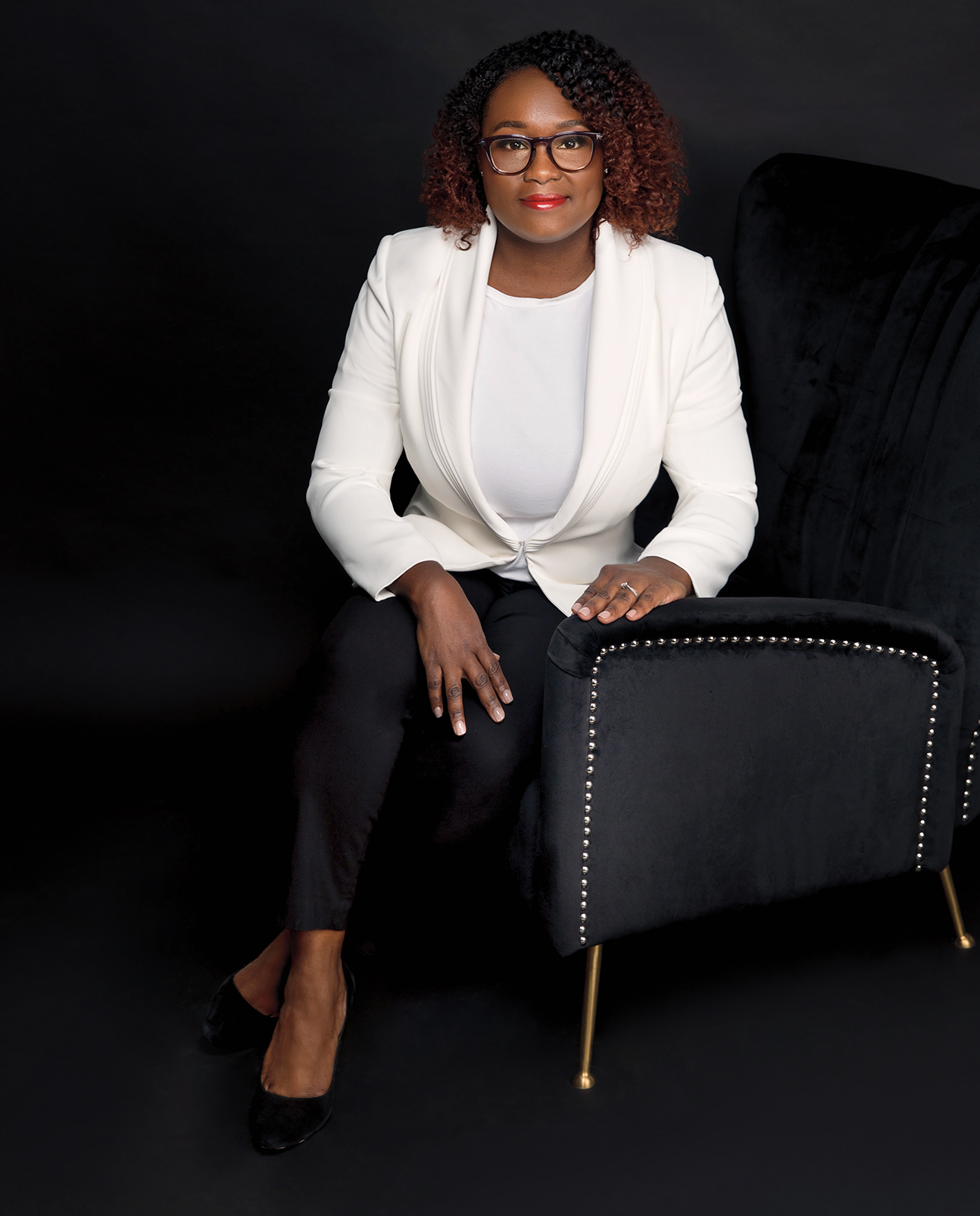Can Crypto Grant More Equal Access to Financial Systems?
Coinbase’s Lianne Worden Believes in the Transformative Power of Digital Currency
Suddenly, cryptocurrency is everywhere, from celebrity Instagrams to stadium names. Crypto valuations have been volatile and the underlying blockchain technology is complex. A recent survey suggests 20 percent of U.S. adults and 36 percent of millennials now own crypto, and there is a growing sense in the business world that digital currency could rewire parts of the economy. The pressure is on policymakers and lawyers like Lianne Labossiere Worden, JD ’09, to help chart crypto’s development.
Worden is chief of staff and counsel to the chief legal officer at Coinbase, the cryptocurrency platform. “We’re at an incredibly early stage,” she says. But if companies and the government can forge the right balance of smart regulation to empower new segments of society, cryptocurrency will provide an “alternative to traditional financial systems that have excluded many communities. It’s about creating a financial system that is more accessible,” she adds.
Worden’s interest in cryptocurrency began in 2020, when she worked for Walmart. At Walmart, she helped to roll out a global anti-corruption program and then led strategy and planning for the U.S. ethics and compliance team. She also learned how blockchain technology, software that can create a secure, permanent record of transactions throughout the supply chain, could support governance protocols. As conversations about racial justice intensified, Worden realized she wanted to more directly impact systemic inequities in the U.S. Worden soon became convinced that digital currency could be the tool to shift a painful reality in the financial services sector: People of color are charged higher rates or even denied credit based on their skin color. Studies also show Black and Latinx households are five times less likely to have bank accounts than white households.
The chance to change that narrative proved irresistible. A friend connected Worden to Paul Grewal, the CLO at Coinbase, and she eventually joined the legal team. Over time, she believes, cryptocurrency can offer a more equitable financial ecosystem that will enable other kinds of traditional transactions, such as credit and loans and interest-bearing accounts for underserved communities. She explains: “It’s the intent of crypto to remove intermediaries, to put more power in the hands of individuals to make financial decisions. That is the beauty of it. And for me, that presented a wonderful opportunity for underserved and underbanked communities in the U.S. to have greater access.”
It’s an exciting place for a lawyer. Coinbase VP and Deputy General Counsel Katherine Minarik notes that Coinbase “couldn’t be imagined” when federal and state laws governing the financial service industry were originally crafted. Worden, she explains, helps manage the operations of five different legal teams with “the perfect balance of pragmatism and optimism and confidence that even when there is no path, there will be a path.”

Forging new paths is familiar territory for Worden. Her parents emigrated from Haiti to the U.S. as teenagers. The family settled in Florida with modest resources, but Lianne’s top grades and test scores earned her a full scholarship to an exclusive private high school in Miami. She thrived academically, yet felt isolated in the wealthy environment. Classmates would not invite her to their study groups—but phone her for help.
Then, an English teacher randomly assigned students to conduct a mock trial of drug lord Pablo Escobar, and Lianne drew lead defense counsel—she would face off against the son of a prominent Florida lawyer. “He looked at me and he said, ‘I don’t need to prepare,’” she recalls.
Just 15, Lianne researched legal arguments, created courtroom diagrams, and argued there was no evidence Escobar had personally ordered crimes committed by underlings. She won the case—and changed how students, and teachers, treated her. “I had a sense of victory,” she says, “and I realized I could make a way for myself at the school, even if it didn’t feel like I belonged.” She graduated salutatorian and gained early admission to Yale.
In college, she studied international politics and transitions to democracy. She arrived at SLS in 2006, unsure of what kind of legal career she would pursue. She says a highlight of her SLS experience was the International Human Rights Clinic, during which students spent six weeks in Namibia, lending legal support to efforts to end forced sterilization of HIV+ women and designing a new model of legal aid. “It was mind-opening,” she says, in that she realized it was critical for lawyers to meet members of a community where they are, rather than impose what you believe they need.
Bolanle “Bola” Olupona, JD ’09, an Associate Legal Officer in the trial division at the International Criminal Court in The Hague, took the same clinic. “Lianne is such a bright star, so brilliant, so dedicated. A lot of people are talkers, few are doers. Lianne is a doer,” she says.
Worden and Olupona are teaming up again, as president and vice president, respectively, of the SLS Black Alumni Association, which they helped found in 2021 along with two other SLS alums (see page 11). “This work is really important to me,” Worden observes. “The legal system is not completely separate from the inequality in our country. It’s important that lawyers understand their role in enforcing and reinforcing and changing systems that exist.”
Nuala O’Connor, a senior vice president and chief counsel at Walmart, says she asked Worden to speak to her team in 2020 about racial justice. “She spoke in a deeply personal way about how people could be better allies, better informed, more aware of these issues,” O’Connor recalls. Worden’s onetime mentor adds, “I think of her as a teacher.” SL
Joan O’C. Hamilton is a former bureau chief for Business Week magazine.
